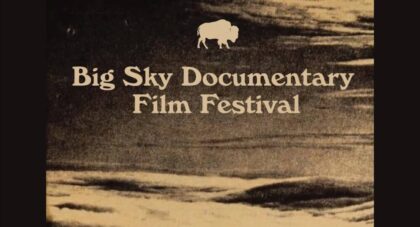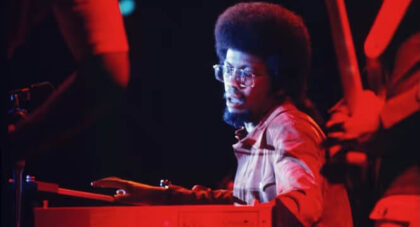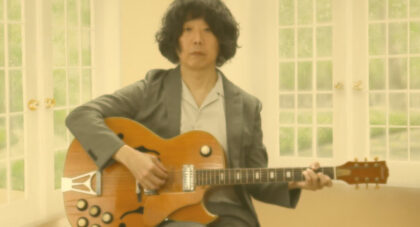As a conceptual artist, Ali Beletic seeks to make her art experiential, utilizing vast desert backdrops in the Mojave and Sonoran to continue the land art traditions of figures like Michael Heizer and Richard Long. Her installations exist as physical spaces, often massive and cinematic in scope, but still approachable, spaces for the viewer to be in and marvel at. With her debut album, Legends of These Lands Left to Live, recorded with her partner Seth Olinsky (Akron/Family, CY Dune), Beletic achieves a similar spaciousness, her songs feature a wide-open sparseness that evokes the deserts outside of Tucson or Joshua Tree, where Beletic honed these songs, but also the swampiness of Memphis and the punk spirit and avant-garde attitude of New York City in the '70s.
"I believe in rock & roll and I believe you have to set up a vanguard opportunity trigger to keep up with it," Beletic writes, and that philosophy serves as a guiding principle in her work, in art she creates, Lightning, the label and magazine she founded with Olinksy, and on the new LP, which combines poetic fervor with coiled blues riffs, scorched garage rock, and junked up rockabilly.
Following are edited excerpts from a conversation with Beletic, phoning from her home outside Joshua Tree to discuss what brought her out to the desert, what the land holds for her, and her use of rock & roll as a "symbolic" force.
Ali Beletic :: Ends of The Earth
Only the good shit. Aquarium Drunkard is powered by its patrons. Keep the servers humming and help us continue doing it by pledging your support.
To continue reading, become a member or log in.


